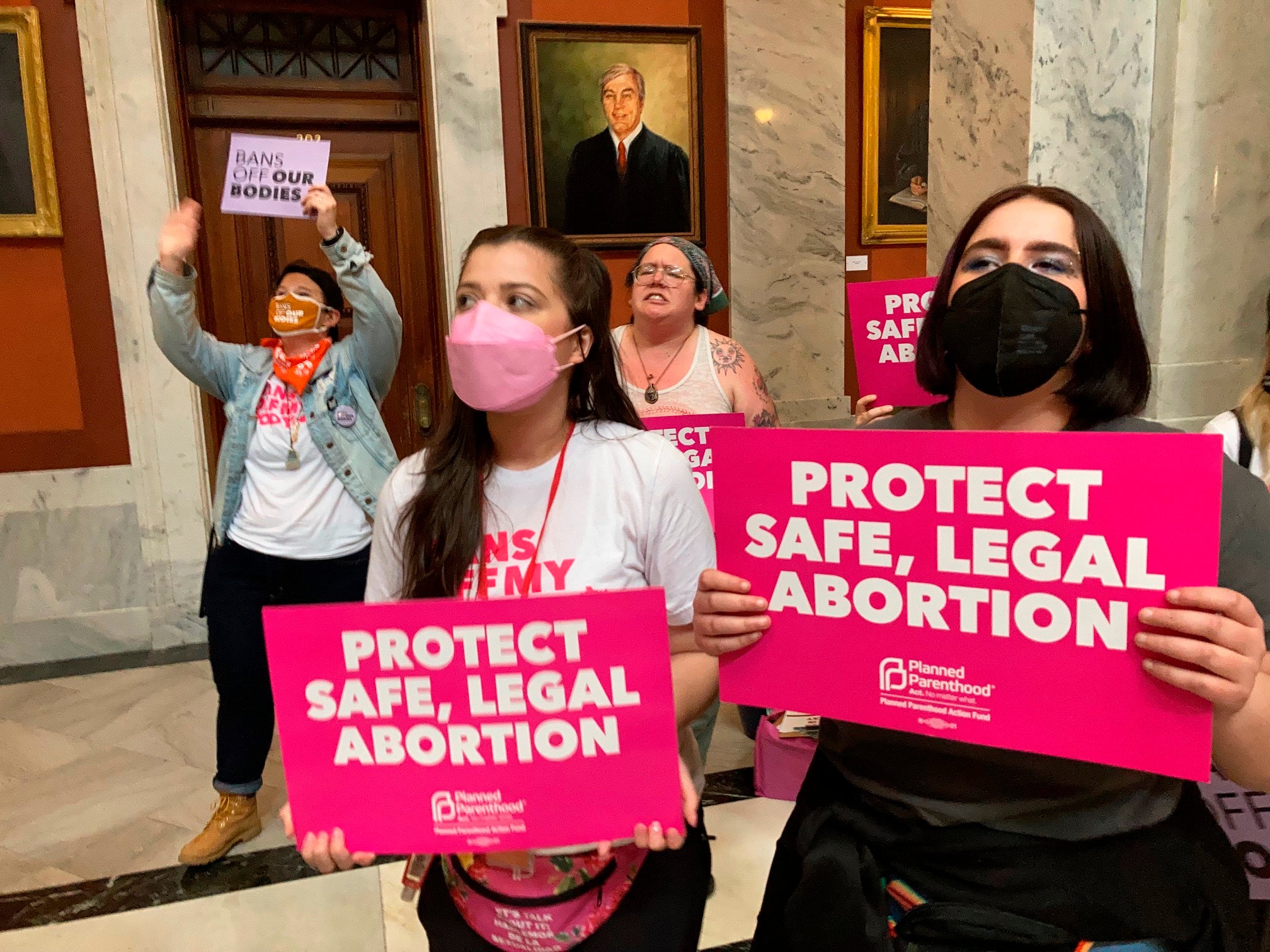Jewish women cite faith in contesting Kentucky abortion ban
Kentucky’s sweeping abortion ban is being challenged by three Jewish women who say it violates their religious rights under the state constitution

Your support helps us to tell the story
From reproductive rights to climate change to Big Tech, The Independent is on the ground when the story is developing. Whether it's investigating the financials of Elon Musk's pro-Trump PAC or producing our latest documentary, 'The A Word', which shines a light on the American women fighting for reproductive rights, we know how important it is to parse out the facts from the messaging.
At such a critical moment in US history, we need reporters on the ground. Your donation allows us to keep sending journalists to speak to both sides of the story.
The Independent is trusted by Americans across the entire political spectrum. And unlike many other quality news outlets, we choose not to lock Americans out of our reporting and analysis with paywalls. We believe quality journalism should be available to everyone, paid for by those who can afford it.
Your support makes all the difference.Kentucky's sweeping abortion ban was challenged Thursday by three Jewish women who brought a lawsuit arguing that it violates their religious rights under the state's constitution.
The legal challenge, filed in state court in Louisville, says the state's Republican-dominated legislature “imposed sectarian theology” by prohibiting nearly all abortions. The lawsuit bears similarities to legal challenges to abortion bans in at least two other states.
“Plaintiffs’ religious beliefs have been infringed: they are Jewish and Jewish law (“halakha”) asked and answered the question of fetal personhood thousands of years ago and rabbis, commentators and Jewish legal scholars have repeatedly confirmed these answers in the intervening millenia," the Kentucky lawsuit reads. “While a fetus is deserving of some level of respect under halakha, the birth giver takes precedence. Jews have never believed that life begins at conception.”
Kentucky's Republican attorney general, Daniel Cameron, signaled he will fight the lawsuit, which names him as a defendant. Cameron has defended the state's abortions restrictions in various courts, touting his anti-abortion stance in his campaign for governor. The gubernatorial election will be in 2023.
“The General Assembly has made it clear that Kentucky will protect unborn life and these laws are an important part of the commonwealth,” Cameron said Thursday in a statement.
It's the latest attempt to strike down Kentucky's far-reaching abortion prohibitions, but the newest suit offers another legal twist by basing the challenge on religious grounds.
Kentucky's Supreme Court has set a November hearing in another case challenging the abortion restrictions. The high court allowed the near-total ban to remain in place while it reviews that case.
Also, abortion will be on the ballot next month when Kentuckians decide the fate of a proposed constitutional amendment that would eliminate the right to abortion in the state.
The lawsuit filed Thursday in Jefferson County Circuit Court in Louisville delves into theology and medical science. The question of when human life begins, it reads, “is a religious and philosophical question without universal beliefs across different religions.”
“Judaism has never defined life beginning at conception,” the suit said, adding that “millenia of commentary from Jewish scholars has reaffirmed Judaism’s commitment to reproductive rights.”
“Under Jewish law, a fetus does not become a human being or child until birth,” it said.
The abortion ban also violates Kentucky's Religious Freedom Restoration Act, the women said in their lawsuit. That law states that government “shall not substantially burden a person’s freedom of religion” unless it proves a compelling interest and uses ”the least restrictive means" to do so, it noted.
The suit also claims that Kentucky's abortion law infringes on constitutional religious rights in regard to use of in vitro fertilization. Two plaintiffs have a child conceived through IVF, the suit said.
The IVF process often results in surplus embryos that must either be kept frozen at high costs or discarded by the clinics with the consent of the donors, the lawsuit reads.
“Plaintiff’s religious beliefs demand that they have more children through IVF, yet the law forces plaintiffs to spend exorbitant fees to keep their embryos frozen indefinitely or face potential felony charges” under the state’s fetal homicide law, the suit said.
“This dilemma forces plaintiffs to abandon their sincere religious beliefs of having more children by limiting access to IVF and substantially burdens their right to freely exercise these sincerely held religious beliefs,” it added.
The Kentucky case echoes lawsuits that were filed in Florida and Indiana to block state abortion bans on the grounds that the measures violate religious freedom.
Kentucky’s legislature enacted a “trigger law” banning nearly all abortions that took effect after the U.S. Supreme Court Court in June stripped women’s constitutional protections for abortion. The only exception under the Kentucky law is when the health of the mother is threatened.
Lawmakers also passed a separate six-week ban. Those laws already are being challenged by the two remaining clinics in Kentucky that provide abortions, both in Louisville.